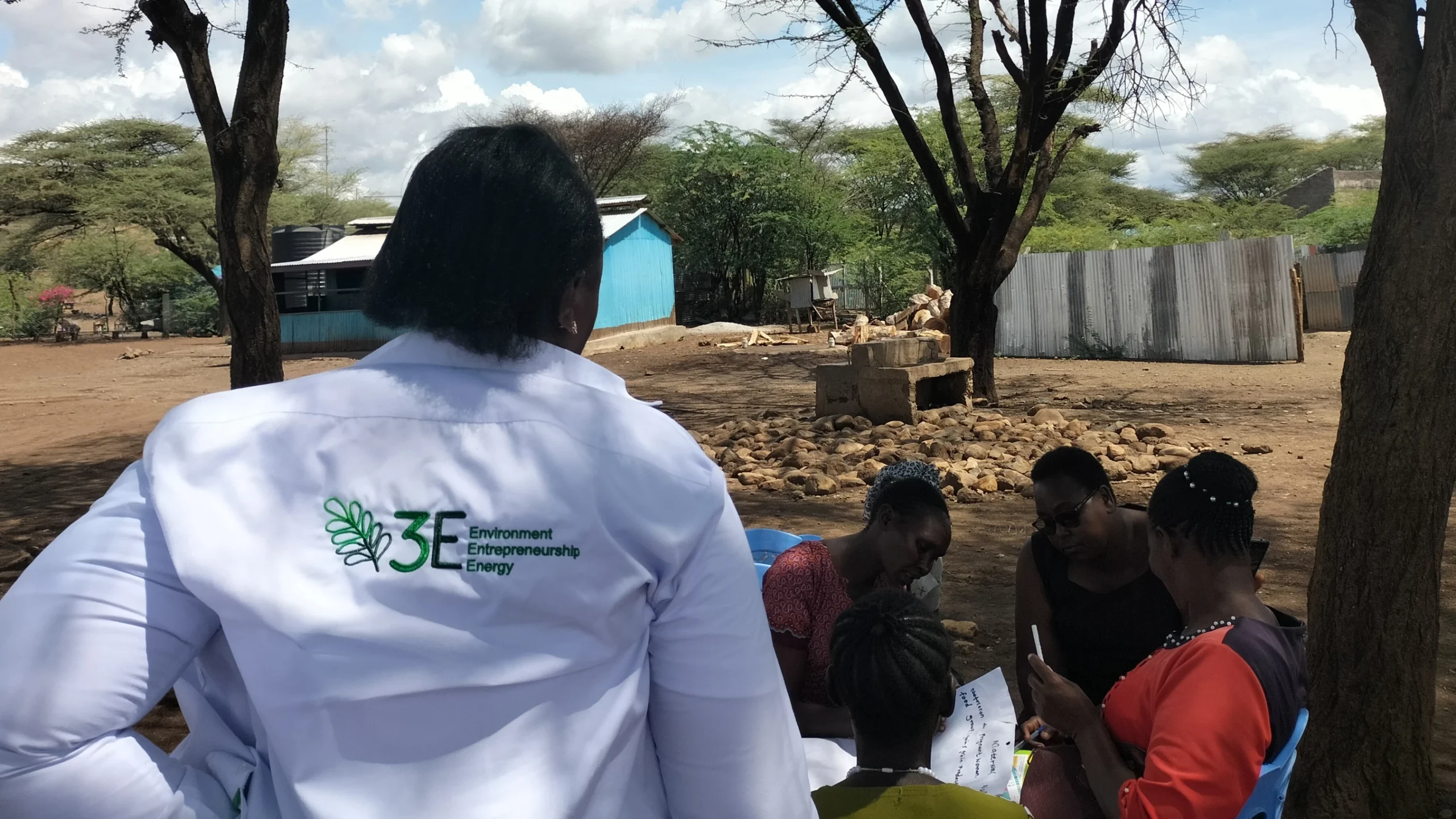Sarah Ruto, a 48-year-old resident of Kaptich village in Marigat subcounty, Kenya, was familiar with the challenges of farming in an arid and semi-arid area (ASAL). For years, she relied on maize farming primarily for commercial purposes, generating income only once a year, which mainly went towards her children’s school fees. However, in 2023, her life took a turn for the better when she became a beneficiary of the “Chakula Chetu, afya yetu” project, led by the 3E organization.
The “Chakula Chetu, afya yetu” project, aimed to empower women in Marigat subcounty through innovative and sustainable agricultural practices. In collaboration with the Ministry of Agriculture, the project offered technical support and training on crops that are well adapted to the area. Sarah volunteered a piece of her land to be used as a demonstration plot.
The demonstration plot became a model for the project. With the guidance of skilled Ministry of Agriculture officers, Sarah and other women group members learned valuable techniques for setting up efficient kitchen gardens. These techniques included creating cone gardens, moist gardens, and multi-storey gardens, maximizing space and productivity. The plot flourished with a diverse range of African leafy vegetables like African nightshade, amaranth, spider plant, and cowpeas. Additionally, vegetables commonly consumed in the area, such as kale, spinach, and spring onions, were incorporated alongside a fruit orchard consisting of pawpaw, mango, and banana trees.
The use of manure as a natural fertilizer enriched the soil and boosted overall yield. Moreover, planting 15 fodder trees served a dual purpose: providing cover and a sustainable food source for the dairy goats, another element of the project. The success of the demonstration plot was undeniable. The kitchen gardens thrived due to their minimal water requirements and ease of management. Encouraged by the initial harvest, Sarah and the group replanted the vegetables, ensuring a continuous supply. The surplus produce provided a new source of income. Sarah found herself a regular vendor at the Marigat market, selling vegetables twice a week.
What started as a willingness to participate in a project blossomed into a life-changing experience for Sarah. Her weekly income from selling vegetables reached a remarkable 2,500 shillings, while pawpaw harvests, brought in an additional 3,000 shillings weekly. Witnessing the project’s transformative power, Sarah made a resolute decision to expand the demonstration plot, allowing her to cultivate even more pawpaw trees and a wider variety of vegetables.
Sarah’s dedication didn’t stop there. During a visit to the demonstration plot, she proudly displayed a newly established pawpaw seedling, a testament to her commitment to growth and expansion. Sarah Ruto’s story is a beacon of hope, proving that arid and semi-arid areas can be fertile ground for sustainable agriculture. By adopting water-saving techniques and utilizing environment-friendly solutions, communities can cultivate a path towards nutritious food and financial empowerment.
The “Chakula Chetu, afya yetu” project serves as a model for future initiatives, demonstrating the transformative power of knowledge, collaboration, and a commitment to a greener future.






